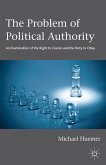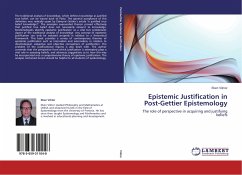According to Moral Reasons Authoritativeness, moral reasons are independent of desires, and it is possible to have a moral reason for acting and not have a desire to so act. According to Motivational Internalism about Moral Reasons, moral reasons are necessarily motivating, and it is not possible to have a moral reason for acting and not be motivated to so act. According to Desire Motivationalism, all motivation is in terms of desire, and it is not possible to be motivated to act and not have a desire to so act. However, if both Motivational Internalism about Moral Reasons and Desire Motivatonalism are true, then it is not possible to have a moral reason for acting and not have a desire to so act. Therefore, Moral Reasons Authoritativeness, Motivational Internalism about Moral Reasons, and Desire Motivationalism cannot all be true. Historically. intuitionists such as H. A. Prichard abandoned Motivational Internalism about Moral Reasons, W. D. Falk abandoned Desire Motivationalism, and emotivists such as A. J. Ayer abandoned Moral Reasons Authoritativeness.







